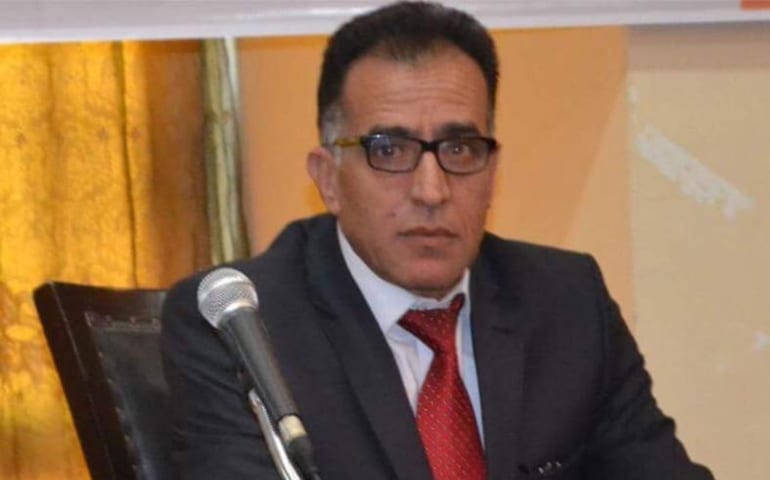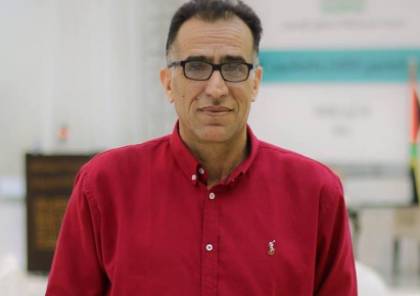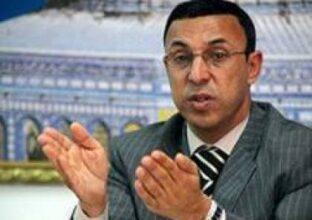Blair in Gaza: rescue plan or recipe to destroy what remains of the national project?
Al-Khamisa News Network - Gaza

By Mustafa Ibrahim
Since the administration of U.S. President Donald Trump took charge of the government and its foreign policy, it has been clear that it is not seeking a just solution to the Palestinian issue or an end to the extermination campaign in the Gaza Strip. Rather, it has sought interim arrangements that please the occupying state at the expense of Palestinians and their right to self-determination. The Trump administration helped normalize the extermination and the continuation of the war instead of offering a just solution, stoked Netanyahu’s regional wars, and gave him additional legitimacy and brazenness to pursue expansionist and aggressive projects.
Today, that mindset is resurfacing again with Haaretz’s revelation of a U.S. initiative to form an international body to administer the Gaza Strip, which could be headed by Tony Blair, the British politician known for his close ties to the Israeli establishment and the American right more than for any affinity with the idea of just Palestinian rights.
Recycling Blair in the Palestinian scene is another sign that the world is dealing with Gaza as a “chronic humanitarian crisis” within a narrow security-economic-humanitarian framework that needs temporary management, instead of recognizing it as an integral part of the Palestinian cause. Although the proposed plan remains vague, its initial outlines reveal a worrying equation: politically separating Gaza from the West Bank, depriving Palestinians of sovereignty, and replacing it with international or security bodies that oversee the population rather than national decision-making.
The plan speaks of an international body tasked with administering Gaza and rebuilding it, and it is possible that Tony Blair would head it. Many questions surround this: who chose Blair? Who authorized him? Does he have an honorable record in dealing with the Palestinian issue? Or does his selection reflect an approach to manage the enclave as a security and economic dossier, far from its political and root causes?
Blair, who previously served as the Quartet’s peace envoy, left no notable achievements behind. On the contrary, his mission became a gateway to dubious deals with regimes and companies amid repeated Palestinian criticism. Is he the figure to rebuild Gaza and move it to a new political stage? Or is this part of an international arrangement to subject Gaza to a post-Hamas order without real Palestinian sovereignty?
Notably, the plan — according to the paper — excludes the Palestinian Authority from the first phase and does not set a clear timetable for returning governance of Gaza to it. This ambiguity opens the door wide for Israel to obstruct any role for the Authority, especially as Israeli Prime Minister Benjamin Netanyahu repeatedly and explicitly refuses its return to the Strip. The paradox is that the Trump administration speaks of partnership with Arab states and the Palestinian Authority, while laying foundations in a way that strips the Authority of its real role and later turns it into a mere executive arm under an international umbrella — an Authority without decision-making power, sovereignty, or the ability to impose an independent national vision.
The likely result: cementing the division between Gaza and the West Bank, and a shift from a Palestinian authority of diminished sovereignty to an international administration without accountability or national legitimacy.
Arab role: between ambiguity and pressure
According to the report, Arab states such as Egypt, the UAE and Jordan could be part of future security arrangements in Gaza by sending forces or participating in international bodies. Yet the Arab position remains hesitant and expresses legitimate concerns: who will confront Hamas? Who will secure the area? Who guarantees that matters will not slide into a new conflict? Are these states meant to act as interposition forces, or as instruments to forcibly disarm the resistance?
There are many questions and no answers. But the constant is that deploying Arab forces in Gaza — without a clear political framework — means dragging the region into a new conflict that would carry heavy political and popular costs these states cannot bear.
At its core, this plan reflects crisis-management logic rather than a solution. Instead of addressing the root causes of the blockade, division and conflict, talk centers on an “open-ended transitional phase,” “economic reconstruction” without sovereignty, and “disarmament” without national reconciliation.
This model is not very different from past experiences in places like Bosnia and Kosovo, where international bodies turned into supra-authorities that administered territory without popular accountability, ending in disguised coercion behind slogans of reconstruction, development and aid.
Gaza is not an international project nor merely a humanitarian crisis; it is a living part of the Palestinian cause. Any attempt to administer it through international bodies headed by figures like Blair, without genuine Palestinian partnership and without a comprehensive solution that ends the occupation and restores rights, will only add another layer of complexity to a record of failure.
What may be most important for Palestinians in the Gaza Strip today is stopping the genocide. But the Palestinian people do not need a new international body; they need real international support for their right to self-determination and to build their state on all of their national territory, without occupation or tutelage.






